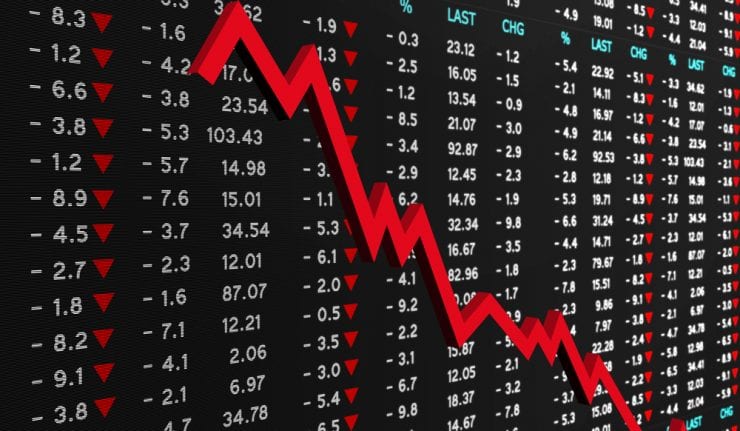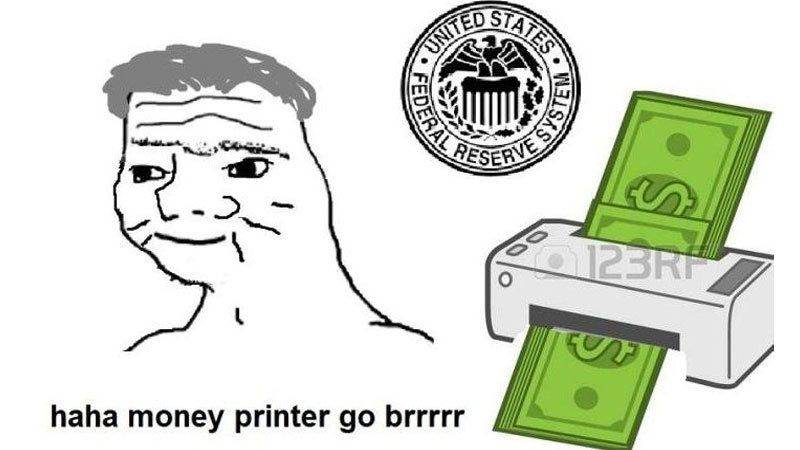
Economic Crash of 2020 - 2021
Preface:
I made a prediction for the NASDAQ and DJI (Dow Jones Industrial Average) on October 4th that we were currently experiencing the peak of the stock market. I then sent a picture of a table I drew by hand (which I won't post because my handwriting is terrible) to some friends on October 4th where the stock market was on that day, and where the direction I saw it heading. I didn't make a blog post at the time since I had other pressing matters but I figured to immortalize this in case anyone needs to fact check me in the future and so I can see how (hopefully) wrong I was. I have the conversations to prove I sent this in October 4th if need be but I hope this will suffice ;P .
Recession or Depression?
In any case, I see the market bottom to be either April 2020 or April 2021 (I know this is a very long range but humor me). The date is more of a fool's gamble which I arrived at projecting based on some supposed leading economic indicators on a graph (I know TA is more like Astrology than a science but it's fun, some indicators include the Yield Spread on various bonds/seeing what looks like a yield curve inversion, South Korean Export Growth Rate YOY %, corporate debt as % of GDP world trade)[1][2] coupled with gut intuition regarding geopolitics/federal reserve interest rate plans. A rise in interest rates which were long overdue meant that crappy companies propped up by easy credit would begin to falter and eventually die. Personally seeing that some companies got their last round of funding for what were clearly bad ideas was a canary in the coal mine. Additionally we are currently experiencing one of the longest economic expansions in history[3] and considering we're nearing the end of the short-term and long-term debt cycles, an economic contraction is long overdue.
That said, regardless of when it happens, when it does happen I conservatively expected at the very least a ~40% contraction from the date of my prediction on October 4th to the bottom (again whenever that is).
Now (Time of Post) - 10/4/2018 .
- NASDAQ: 7,490
- DJI: 26,650
Projected April 2021 but maybe sooner Apr 2020(?)
- NASDAQ: 4,868 (~40% drop from October 4th can be more or less)
- DJI: 17,800 (~40% drop from October 4th can be more or less)
I also predicted that following a possible Democratic win of the House, we would see a further drop in markets as lax regulation precipitated/supported by GOP would no longer be priced in and thus institutions would begin to "price in" increased oversight and regulation by the Democrats which would rein in profits.
Update:
Currently posting this on 1/7/2018, and some recent days of froth (that is, wild swings up and down of single digit %) point to the fact (which if crypto is any sign - somewhat facetious but somewhat not) that this bubble is about to burst. We may even have a short rally until mid February or March of this year but the looming specter of Brexit on March 29 (The UK is due to leave the European Union on 29 March, 2019 - it's the law, regardless of whether there is a deal with the EU or not)[4] will ensure it is short-lived. This combined with American political uncertainty as a result of the government shutdown (which has its own economic effects as 450,000 government employees are working without pay, which in turn means less monetary velocity/economic activity which depends on those very same employees: see nannies/daycares)[5] means that we do not have the political or economic will to a) stave off a crisis or b) mitigate a recession or other crises accordingly. This isn't even taking into account other issues which may arise which can have tertiary effects on the economy which politicians are not equipped to handle appropriately.
None of this even includes possible natural disasters(climate change will increase the scope and intensity of such disasters), increasing wealth disparity (who owns automation or stocks in automation?), inability for individuals in the US to bear the cost of a crisis.
40% of Americans still don’t have enough money to cover an unexpected $400 expense. And less than two-fifths believe that they are on track with their retirement savings. About six in 10 Americans (61%) don’t have enough cash put away to cover a $1,000 emergency, such as an ER visit or a car repair, according to previous Bankrate research. And data from GoBankingRates.com last year found that more than a third of people (39%) admit they have nothing in their savings accounts.[6] .
.
63% Of Americans Don't Have Enough Savings To Cover A $500 Emergency [7]
With Baby Boomers beginning their retirement they will have their purchasing power drastically reduced and their correspondingly lower expenditures will lead to a slowdown in the economy. Boomers cannot spend their money like they used to if they are no longer working, needing to rely on their retirement savings (which will be ever dwindling if they had their money parked in stocks which have recently took a beating). Economists forecast "dramatically lower stock market returns" in the next 10 years [8] [9] and, as such, this means that Boomer nest eggs won't go as far as they had planned them to, meaning again less economic activity. This issue will also have a ripple effect into Generation X and Y who will see their retirement funds grow much slower than they had planned, meaning they will have to work longer. Lastly, the aging Boomer population will begin to tax our healthcare system like never-before-seen. Decades of poor physical activity and dietary choices mean that the United States healthcare system will be stretched to its maximum capabilities with no one to care for them(look up growing healthcare worker shortages, this is without a huge old population). The "grey tide" which will flood the US will have its impact long after the Boomers are gone, although their health issues will begin now that they are entering retirement.
This also does not take into account if there is a global war(maybe resource wars - water as a result of climate change or localized civil wars which evolve into proxy wars such as in Syria due to climate impacts), pandemics, massive migration into wealthy nations as a result of climate change --> corresponding rise in nationalism/populism etc which I won't get into in this post. I rambled quite a bit here but wanted to get some of the thoughts down which I've talked about ad nauseum in person with friends of mine. A crash will eventually happen but ultimately who knows when. I hope to have enough self awareness and know this is an exercise in futility to try and predict how and when it will happen but hopefully what I have listed above helps you be a bit more prudent in your investment decisions.
Note:
This is still a rough stream of consciousness I'll get around to editing this...sometime.
Footnotes
References
https://www.investing.com/economic-calendar/south-korean-export-growth-1316 ↩︎
https://www.quora.com/Is-there-data-on-corporate-debt-to-GDP-available ↩︎
https://money.cnn.com/2018/01/30/news/economy/us-economy-boom-history/index.html ↩︎
https://www.cnbc.com/2019/01/04/5-industries-affected-by-government-shutdown.html ↩︎
https://www.cnbc.com/2018/01/18/few-americans-have-enough-savings-to-cover-a-1000-emergency.html ↩︎
https://www.forbes.com/sites/maggiemcgrath/2016/01/06/63-of-americans-dont-have-enough-savings-to-cover-a-500-emergency/#5bc5f5ff4e0d ↩︎
https://www.blackrockblog.com/2016/04/18/prepare-for-return-environment/ ↩︎
https://www.cnbc.com/2017/05/07/get-ready-for-dramatically-lower-stock-market-returns-over-the-next-decade.html ↩︎
Faolain Newsletter
Join the newsletter to receive the latest updates in your inbox.


